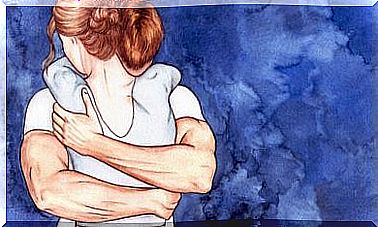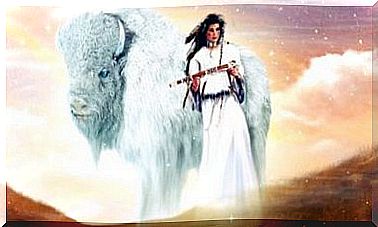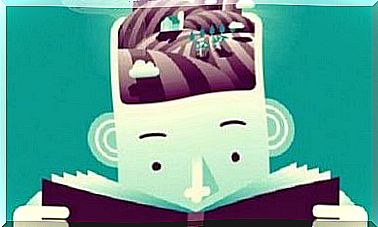When You Are Afraid To Go Against The Flow: To Be Different

Being accepted by others is a deeply instinctive need. People are social by nature, happy when they are part of the group and sad when they are marginalized. When one feels excluded, a thousand year old alarm is activated in the depths of our brain. We know that if we are alone, if we go against the flow, we are more exposed to dangers lurking around the corner.
This is where our fear of going against the flow and being different comes from. This is also where our dangerous tendency to follow the masses comes from. In principle, we are afraid of being different from others.
The most worrying thing about this fact is that the prevailing social current sometimes goes against what is reasonable or desirable. The most obvious example is, of course, what is always mentioned, Nazism. Many people joined this sick, inhuman movement simply out of fear. They all went in the same direction. As absurd as it was for many, many considered it better to follow the current than to resist.
But this does not only happen in major historical events. There are also countless everyday situations where this happens. For example, it happens with bullying. Even though many people know deep down that they are engaging in reprehensible behavior, they remain silent. Or they join the bullying, just to avoid fighting the current. What can be said about that fear? Is there any way to get rid of it?
The fear of thinking and being different from others
In a certain way, we are all encouraged to create a kind of character that represents us socially. This means that someone has told us how we should be ever since we were born. What should I do and what should I not do? How should I behave? But this is not always – or even often – exactly what we actually want or want to do.

To be part of a society and a culture, we must “falsify” ourselves a little. We must respect the current, even if we do not want to. Or we must learn to eat with cutlery, even if it seems useless or complicated. This is the price we have to pay if we want to be accepted in a human group. This is partly why, when we are in society, we play one or more characters.
Why do we end up accepting these rules in the game? Just because if we do not, we will be rejected or punished. The others are not willing to accept that we do what we want. So often they will oppose, subtly but powerfully, any position that is different from that of the group.
They place restrictions on us, which they do not always explain to us and which we do not always understand. But in general we learn to act according to their rules because we are afraid of the suffering it causes not to do so.
Growing means becoming more independent and perhaps being different
Some people never get the chance to move past this phase of childhood. When we are little, adults tell us what to do. We get used to obeying, usually without knowing why. Good and evil are taught to us as absolutes where our opinions and feelings do not matter so much.

To grow means to understand a “why” behind these norms, limitations and restrictions. It also means deciding how well it suits our desires and then acting accordingly. To do all this, we must let go of our fear of thinking for ourselves. It’s time to explore who we are, beyond the character we have learned to play.
When we recognize ourselves as adults, we begin to see that we have the resources to disagree with things and go against the flow. Of course, we must first know what we agree on. That will constitute our beliefs. And beliefs are what give us the strength to be different if necessary.
Unfortunately, we do not complete the process all the time. Sometimes you choose not to grow. It is a tough job that requires not only effort and perseverance, but also values. Not everyone is willing to travel all the way leading them from the character they have built to their true self.
Not everyone wants to come face to face with their fear of being themselves. But those who do – they get freedom. They also get a chance to shape their own destiny, in line with who they really are.
Photos courtesy of James Bullogh









